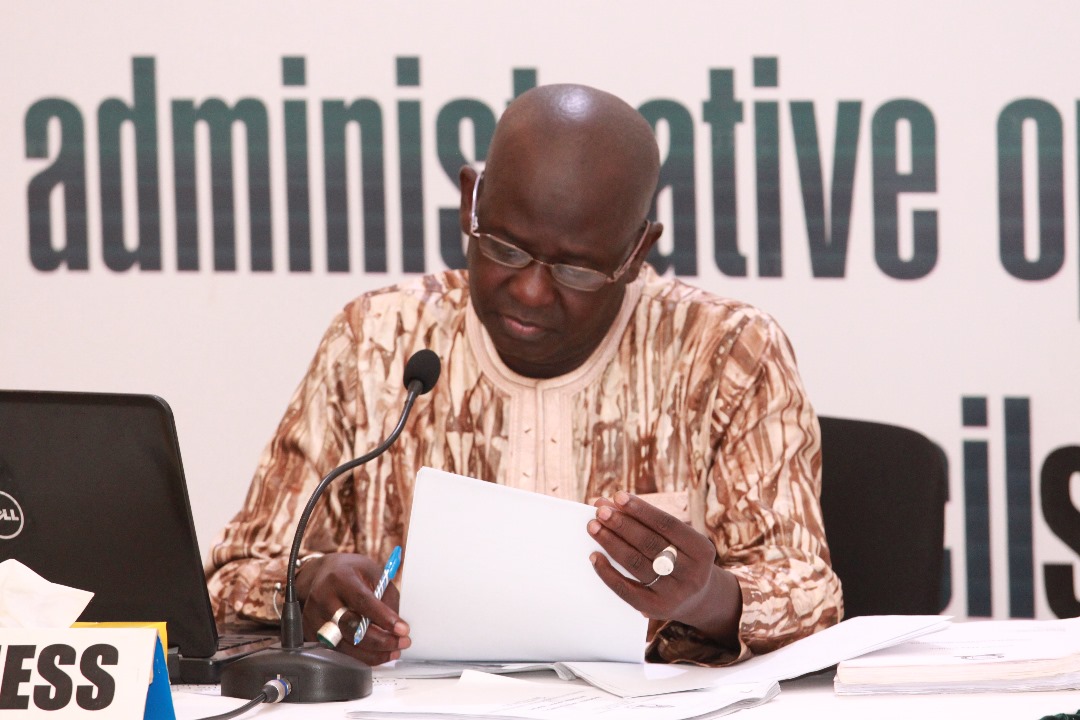Gambiaj.com – (BRIKAMA, The Gambia) – On Tuesday, Alagie Jeng, the Director of Finance at the Brikama Area Council (BAC), continued his testimony before the Local Government Commission of Inquiry (LGCI), shedding light on significant financial irregularities within the Council.
The inquiry focused on the 2020 and 2021 audit reports by the National Audit Office (NAO), which highlighted numerous instances of mismanagement and unauthorized payments.
Missing Documents and Unauthorised Payments
During the inquiry, Jeng was questioned about missing GTR books from revenue collectors Pa Sanjally Bojang, Sanna Jarju, Kebba Jammeh, Famara Sanyang, Momodou B. Jallow, and Karamo Sarjo. Jeng claimed these documents were later found, contradicting the auditors’ findings that they were never presented.
Further scrutiny revealed that in 2021, essential financial records, including bank reconciliation and financial statements, were not presented for auditing. Jeng insisted that he had submitted them but was asked to provide this evidence by the following week.
The auditors also highlighted unauthorized payments totaling 3.7 million Dalasi. Jeng, unaware of the audit report, maintained that these payments were authorized and was given time to substantiate his claims.
Payments Without Due Process
The BAC was found to have made over 1.3 million Dalasi in payments without adhering to due process. Notable irregularities included multiple payments to Omar Sidibeh and Mustapha Manneh for clearing services, all without supporting documents or formal contracts. Jeng admitted these payments were unlawful, taking full responsibility along with the CEO.
Payments were also made to individuals not on the Council’s payroll, amounting to 442,431 Dalasi. Jeng explained these payments were not stopped due to a lack of notification from the administrative department.
Unlawful Allowances
A significant issue raised was the dual payment of fuel and transport allowances to staff, violating Council laws. Despite recognizing the illegality, Jeng justified these payments as motivational incentives authorized by himself and the CEO. The total expenditure on these allowances in one year was 738,000 Dalasi.
Discrepancies in Staff Payments and Loan Irregularities
Jeng was questioned about junior staff receiving higher allowances than senior staff, a claim he initially disputed but later could not substantiate. The inquiry also uncovered unstructured loan distributions, with 874,626.24 Dalasi given without agreements or guarantors. Jeng acknowledged the absence of a loan policy and the CEO’s discretionary approval process.
Unaccounted Expenditures
The inquiry revealed that BAC’s payment vouchers amounting to over 1.7 million Dalasi lacked appropriate signatures. These expenditures included flight tickets, medical expenses, and advertisements. Jeng admitted the oversight and was asked to provide further details.
Lack of Contracts and Fuel Misallocation
The Commission noted that BAC made significant payments for services without contractual agreements, including repairs at Espace Motors. Additionally, fuel allocations were made to non-Council vehicles, a practice Jeng attributed to the CEO’s decisions and the absence of a proper policy.
Jeng’s testimony has exposed deep-rooted financial mismanagement at BAC, with the LGCI demanding accountability and rectification of these malpractices. The inquiry continues as the Commission seeks to uncover the full extent of the irregularities.










